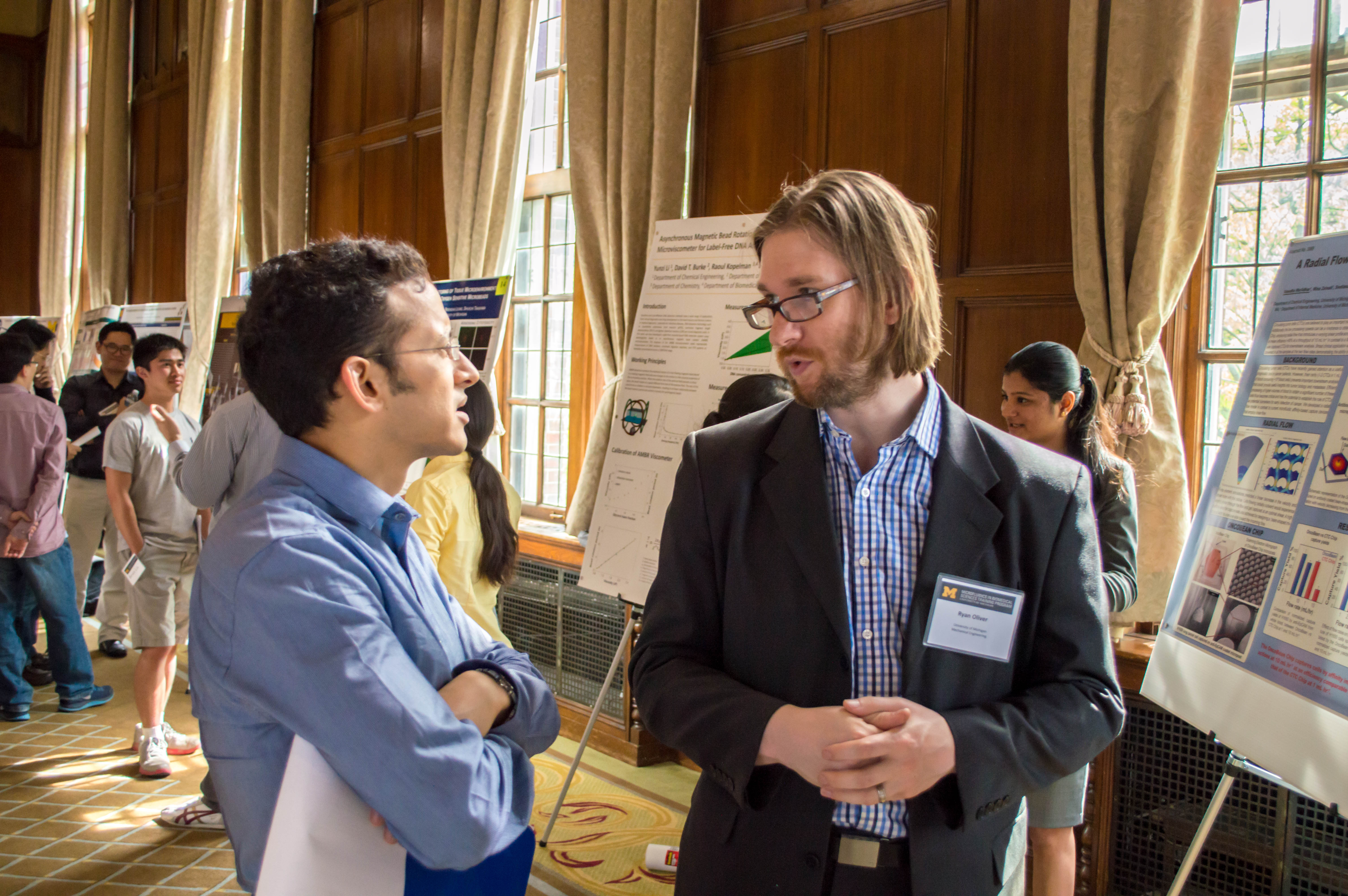I’ll be presenting a poster at the MBSTP (Microfluidics and Biomedical Sciences Training Program) 2014 at the University of Michigan in Ann Arbor.
This event is organized annually by and for the training fellows supported by the NIH through the MBSTP training grant. We are honored to be hosting Professor Luke Lee from UC Berkeley as the keynote speaker to discuss the various microfluidic based on chip tools he and his colleagues have developed.
I will be discussing our work on microparticle synthesis and real time detection and tracking of particles/cells in a microfluidic device.
Come join us if you can. Details: MBSTP SYMPOSIUM
Date: Monday, May 19, 2014
Location: Michigan League (Directions)
| Schedule: | Poster Contest 4:00-6:00 PM Dinner 6:00-7:00 PM Keynote Lecture 7:00-8:00 PM |
Keynote Speaker: Prof. Luke P. Lee, UC Berkeley
Talk Title: Bionanoscience for Innovative Global Healthcare Research & Technology
Abstract: It is critical time to solve the problems of current qualitative biology and developing world healthcare challenges. In the first part of talk, I will discuss (1) cellular BASICs (Biologic Application Specific Integrated Circuits) for single cell analysis, dynamic cell culture array, aging biology on chip, single cell chemotaxis, label-free electro-physiologically activated cell sorting (ePACS) for induced pluripotent stem cells (iPSCs); (2) patient-specific iPSCs-based Integrative Microphysiological Analysis Platforms (iMAPs) for drug screening and safety; (3) Integrated Molecular Diagnostic System (iMDx) which has on chip sample preparation, multiplexed assays, amplification, and readout into a sample-to-answer (whole blood to visual readout) disposable point-of-care diagnostic capability for global healthcare. In the second part of talk, I will present biophotonic nanosatellites that have multiple functions in living cells: targeting, imaging, gene delivery & gene regulations. As radio antennas were developed for wireless communication, the optical antenna function of nanosatellite can provide solutions for concentrating optical radiation to dimensions less than the diffraction limit, imaging electron transfer dynamics via Plasmonic Resonance Energy Transfer (PRET) nanospectroscopy, and the optical gene regulation. The precise spatiotemporal control of transcription factor NF-kB is demonstrated by the selective spatiotemporal liberations of IkB siRNA and p65 siRNA from nanosatellites. In summary, I will share my vision for the convergence of science, engineering, and medicine to transform life sciences, and finding the solutions for preventive personalized medicine and low-cost healthcare systems.






